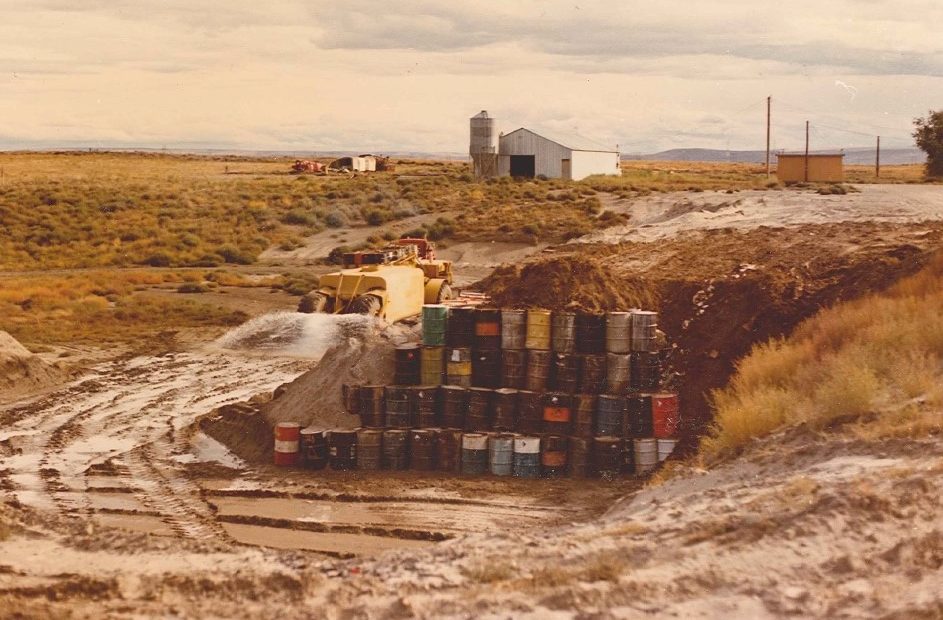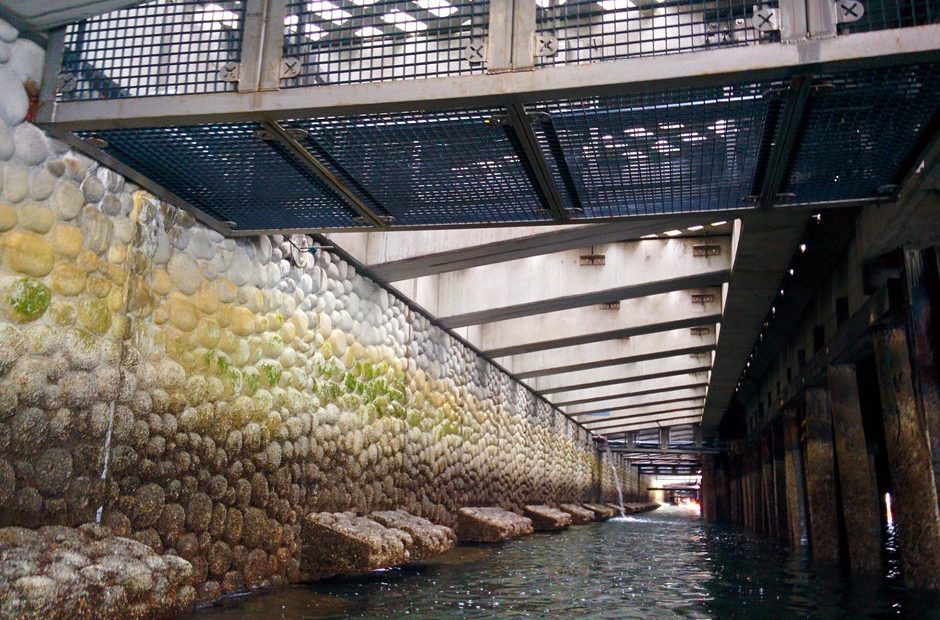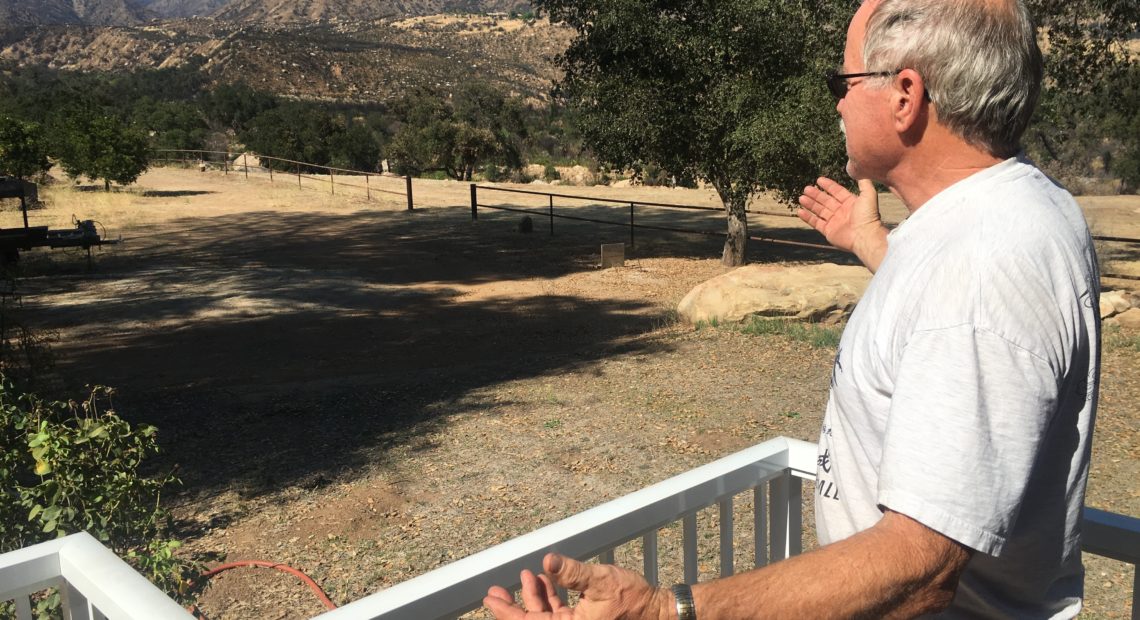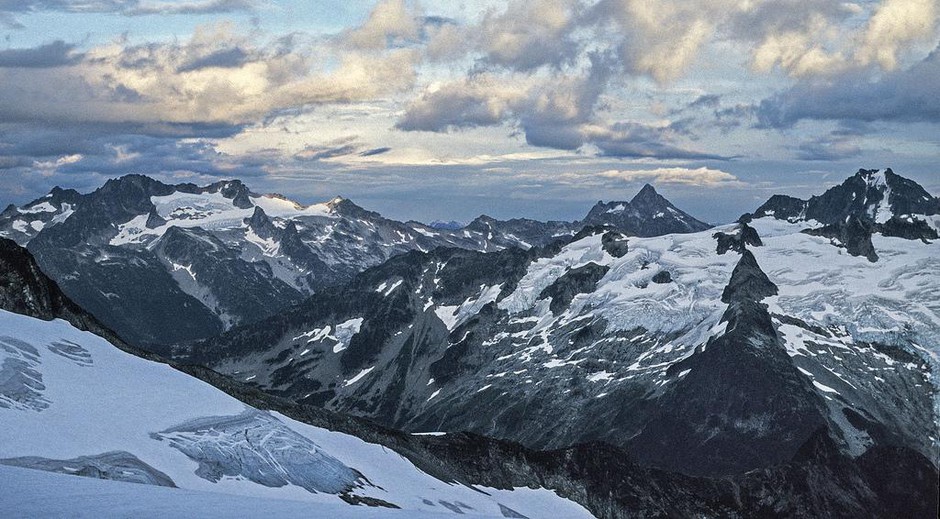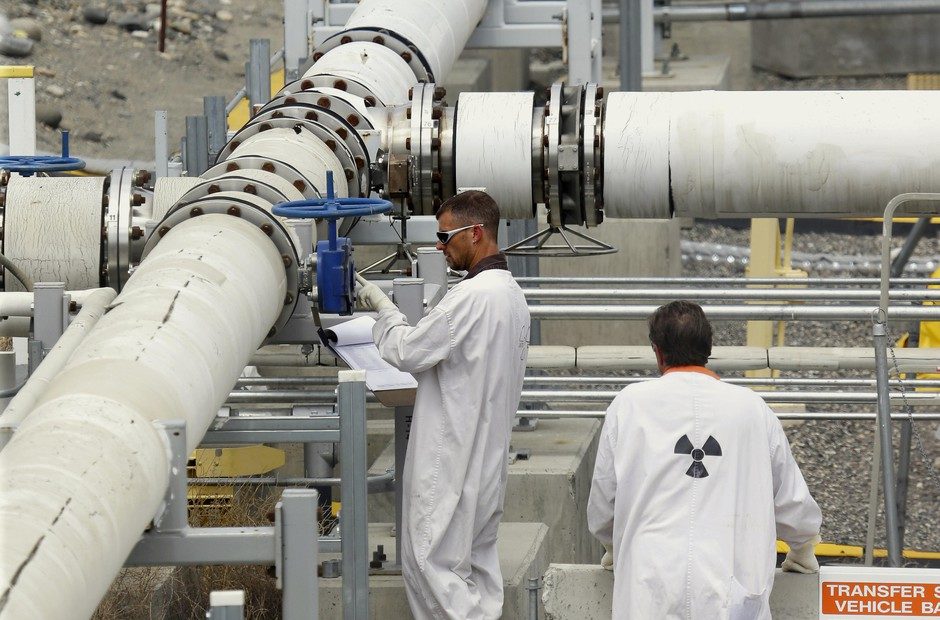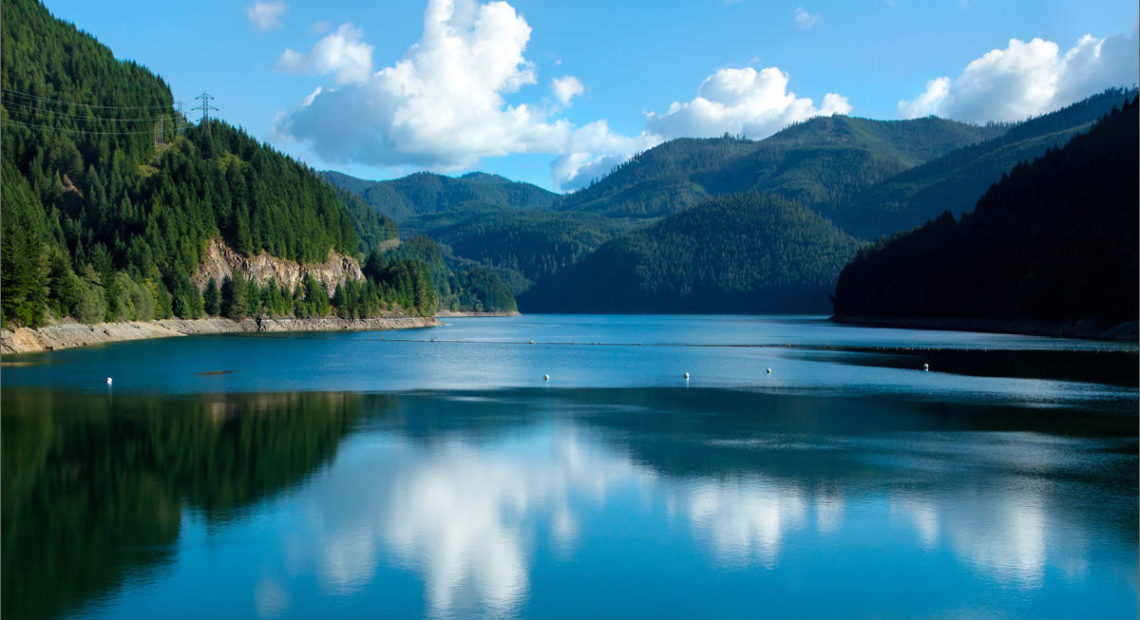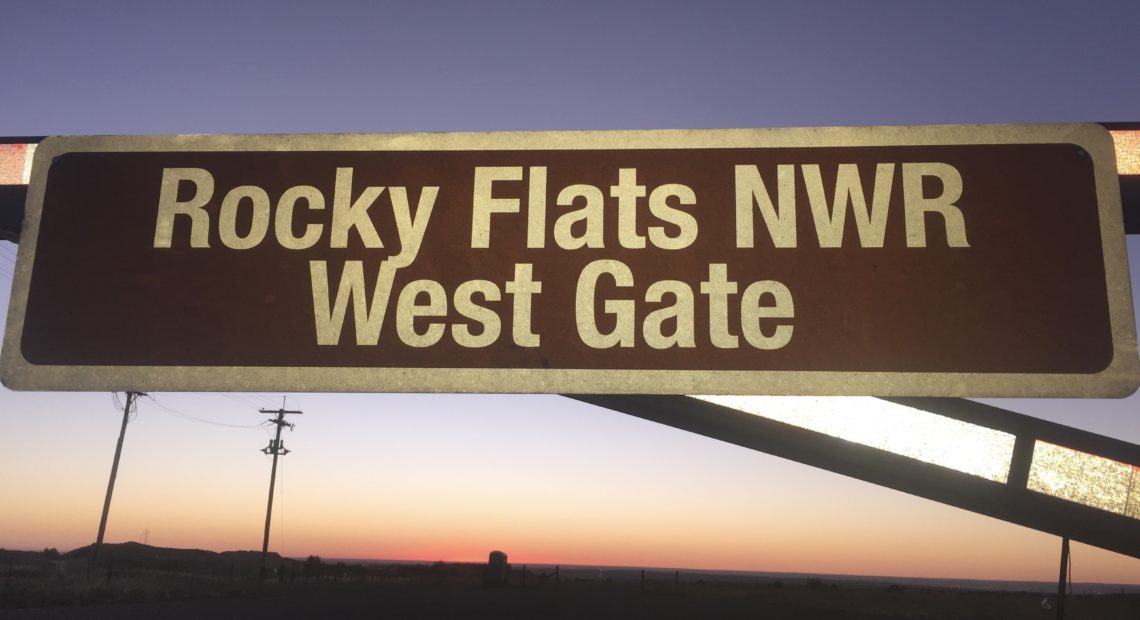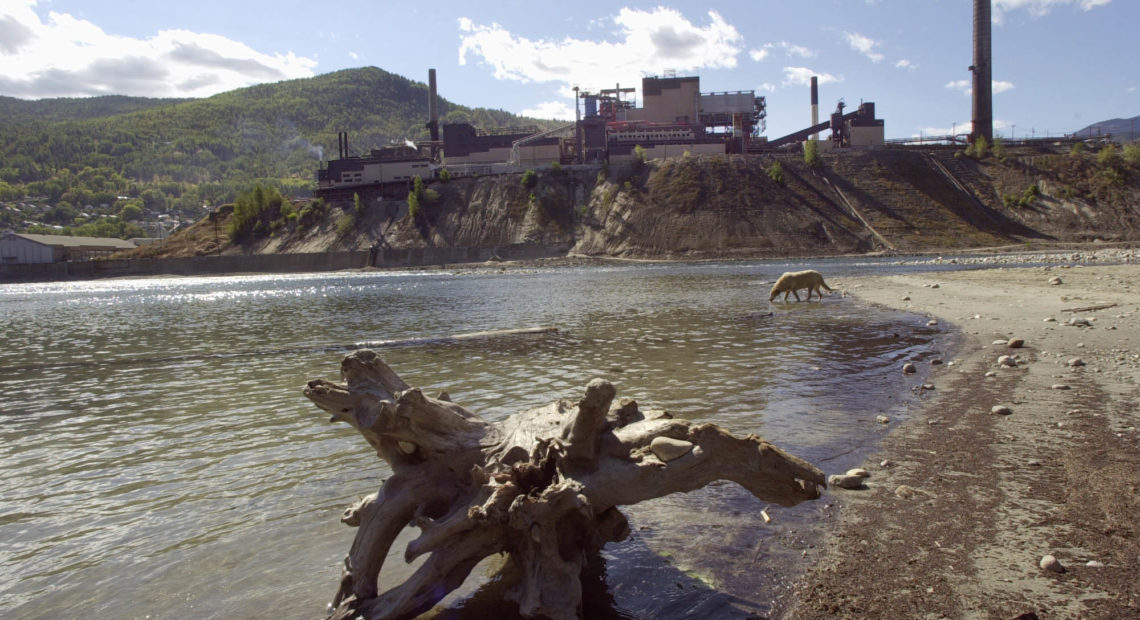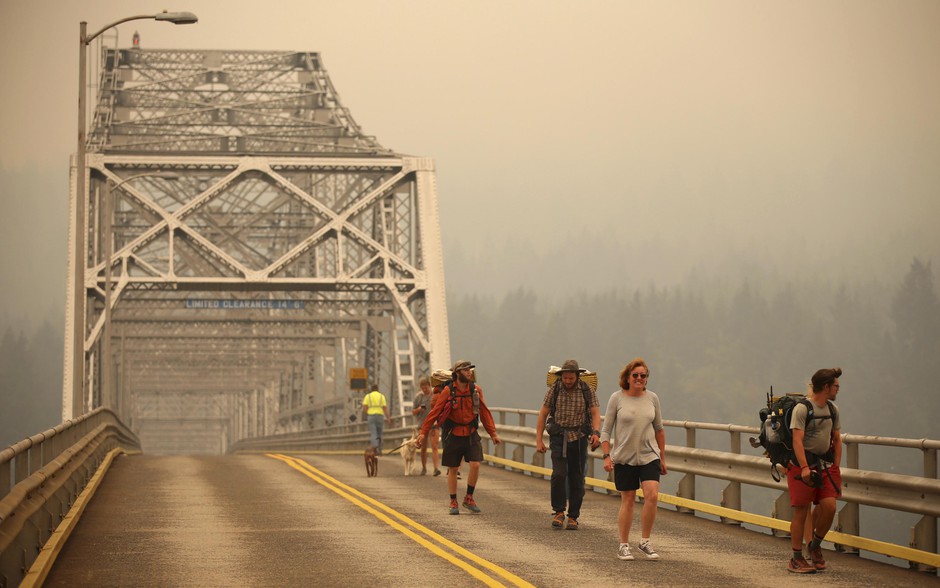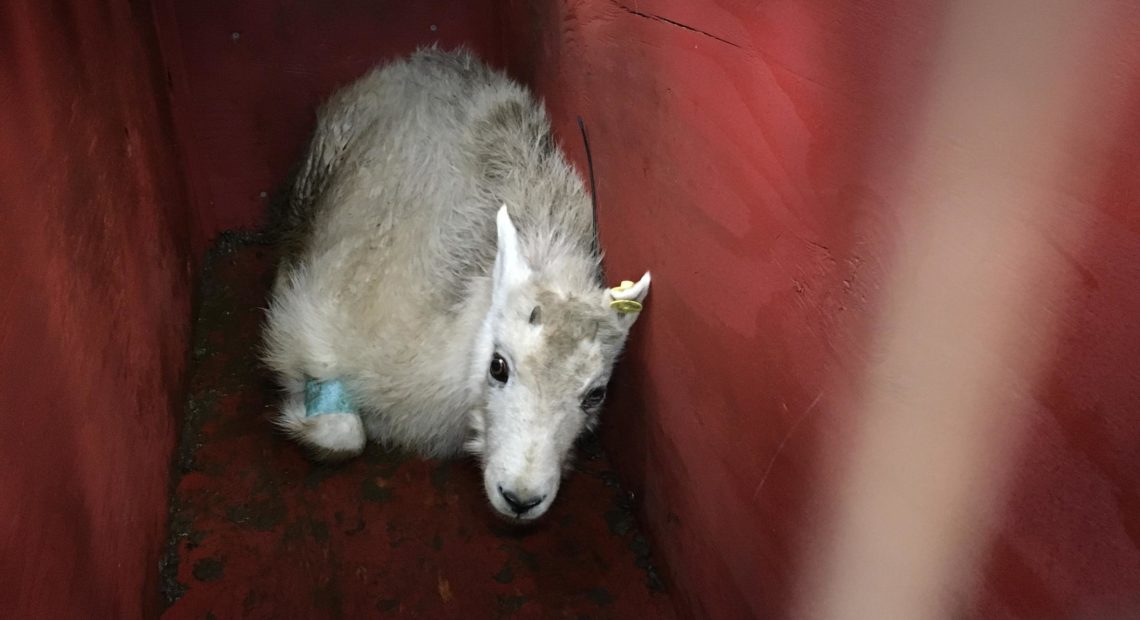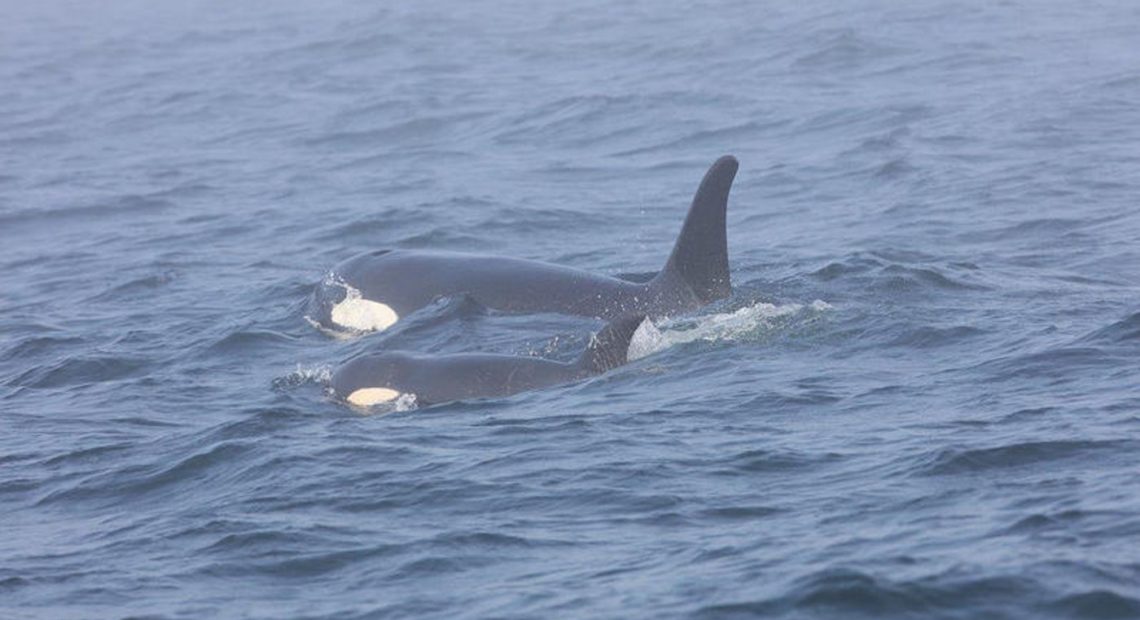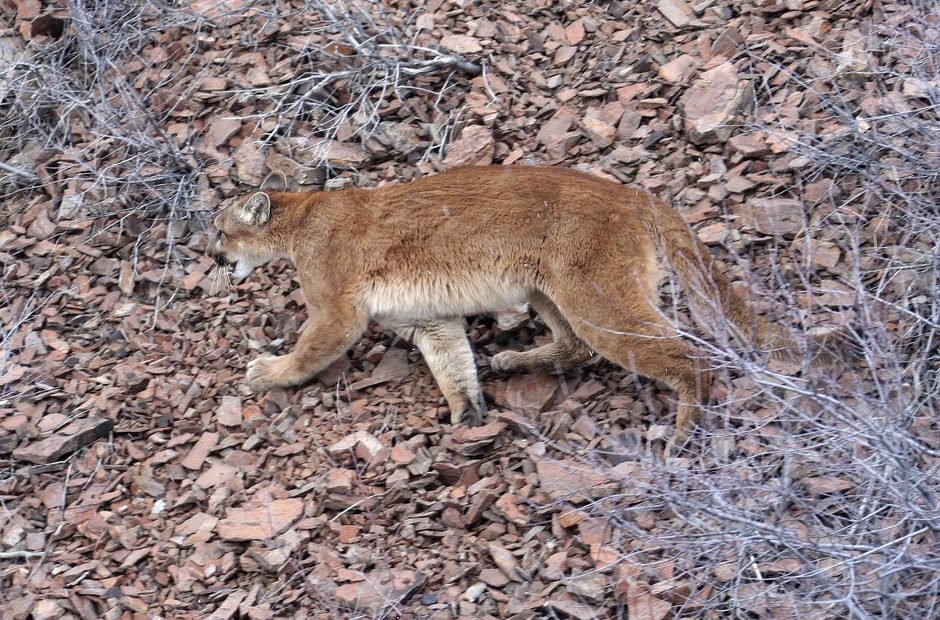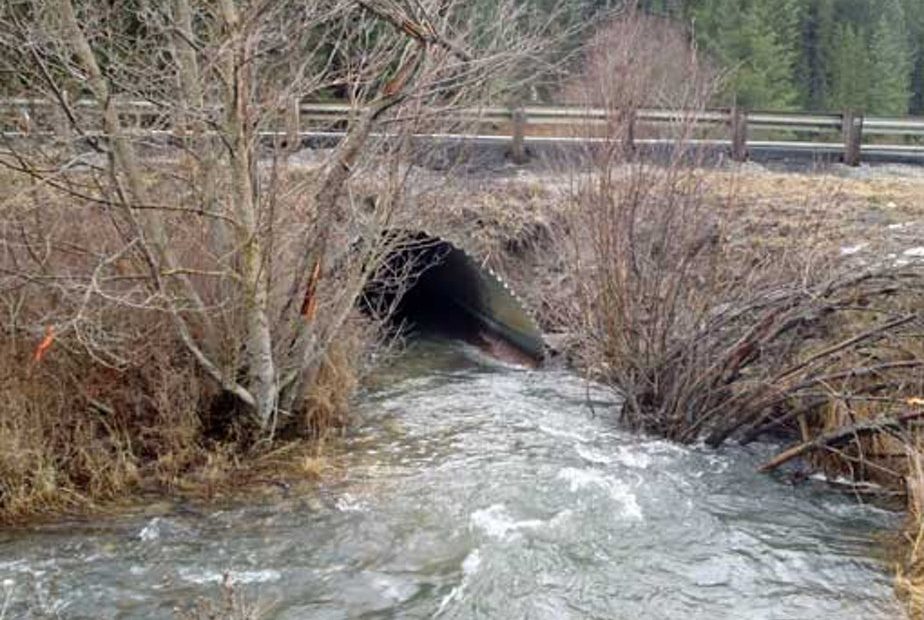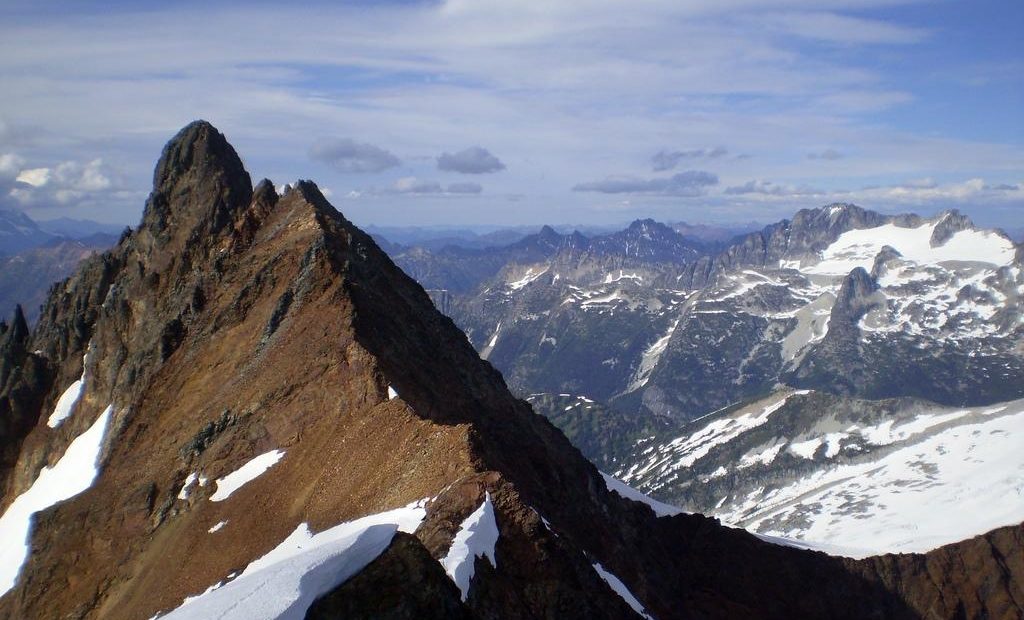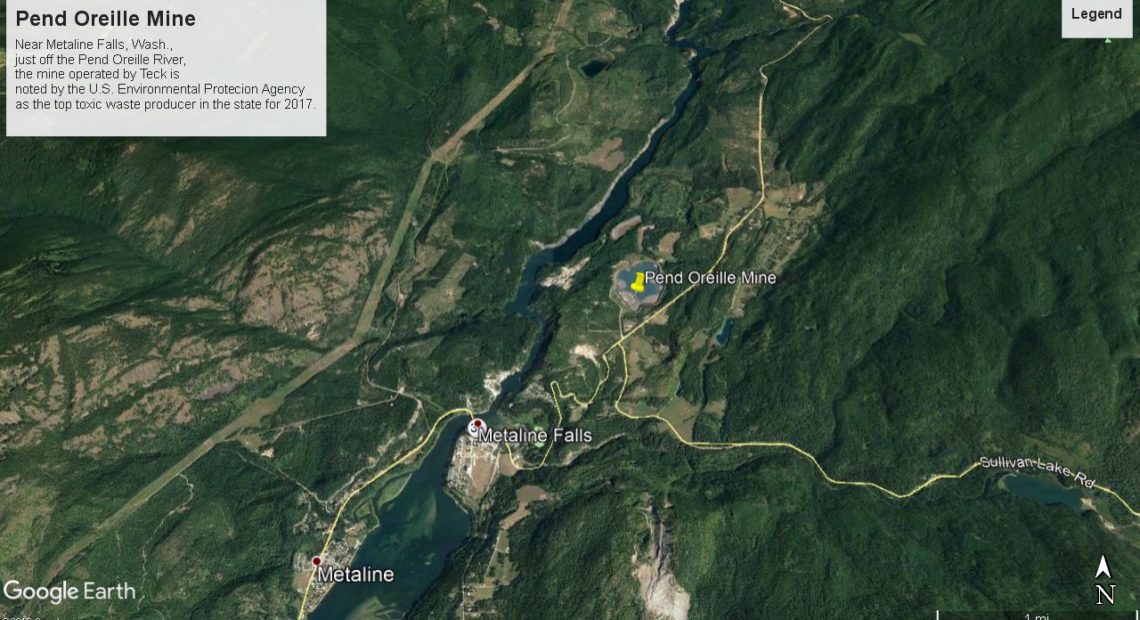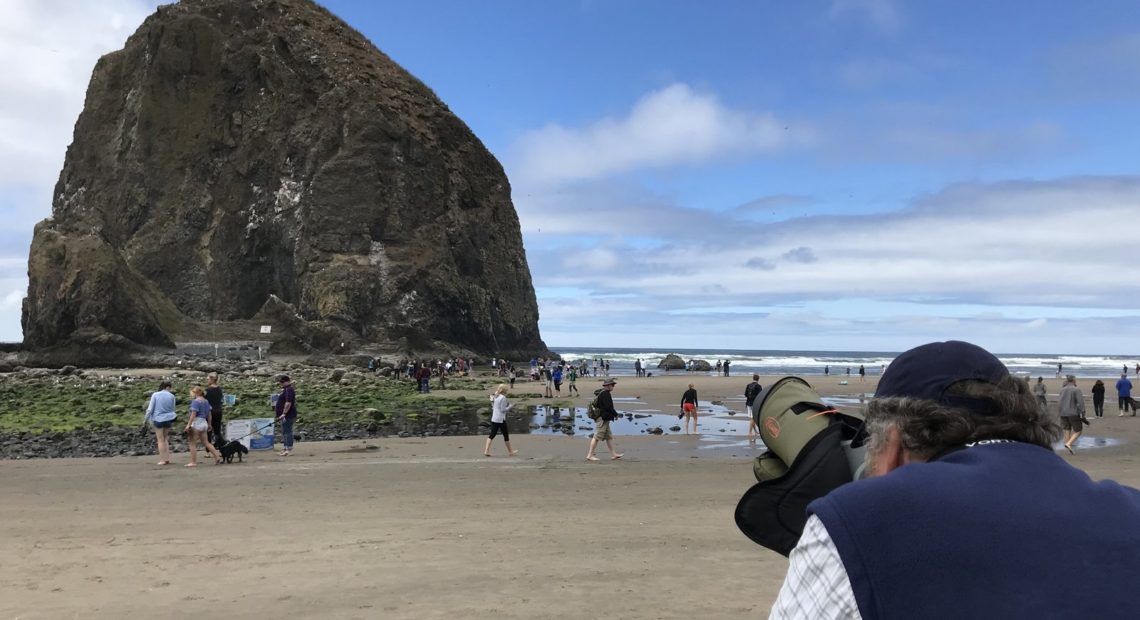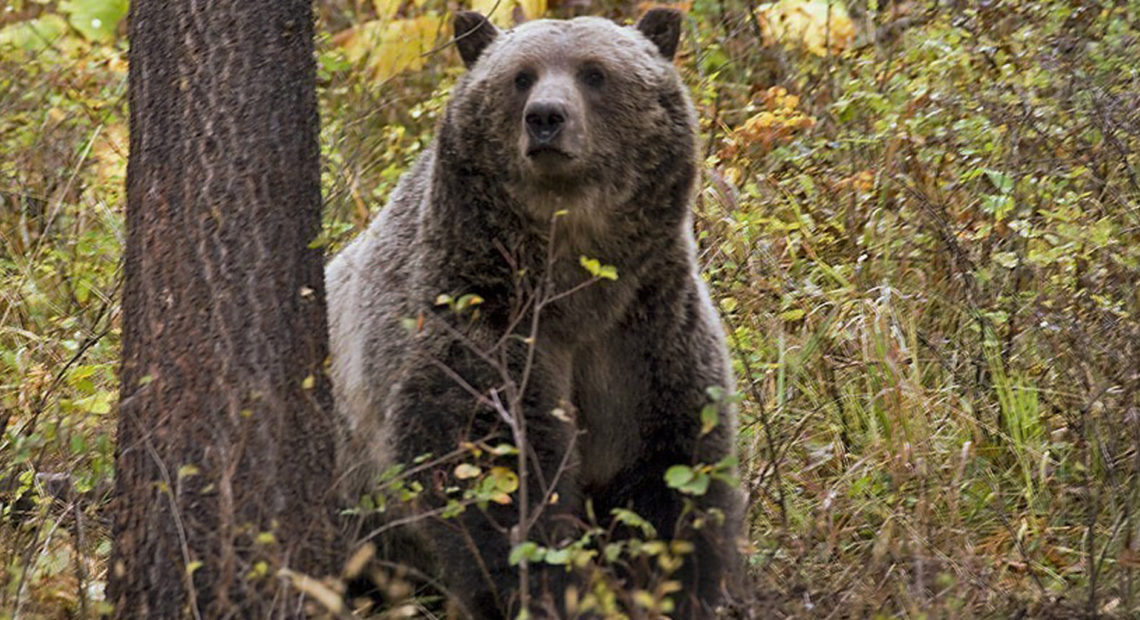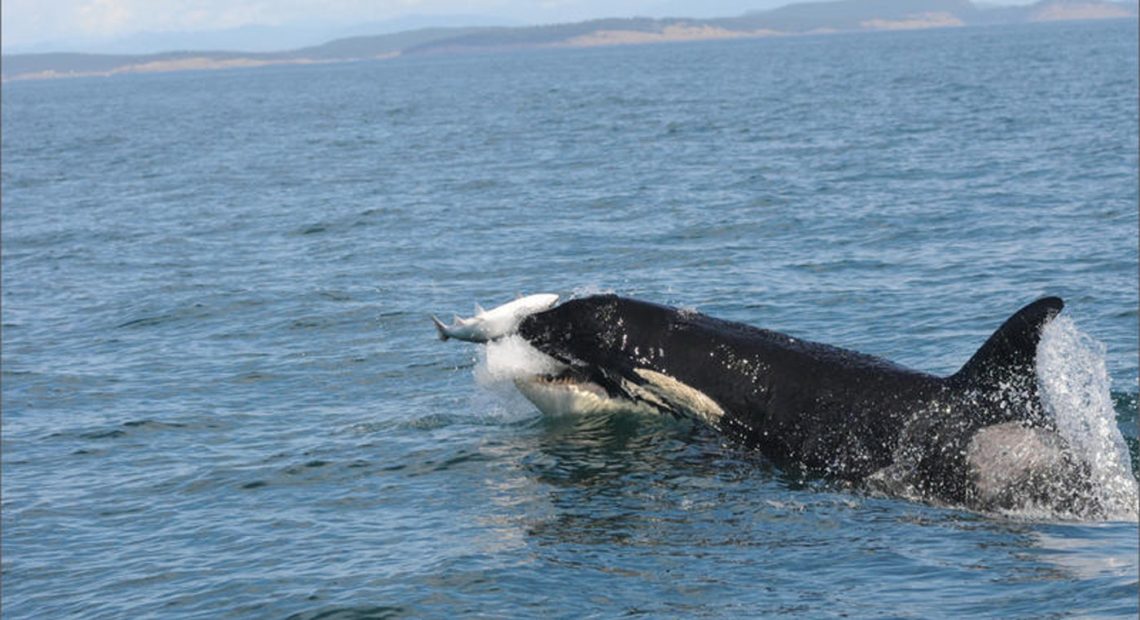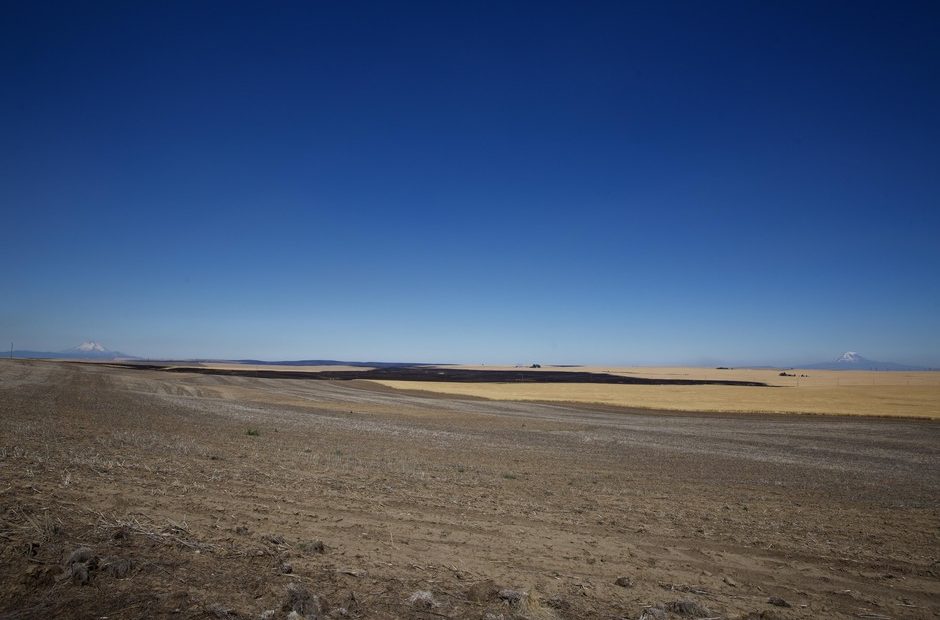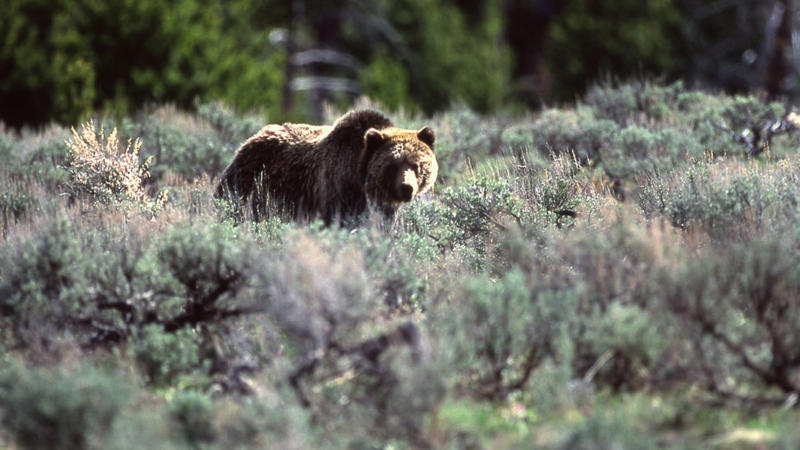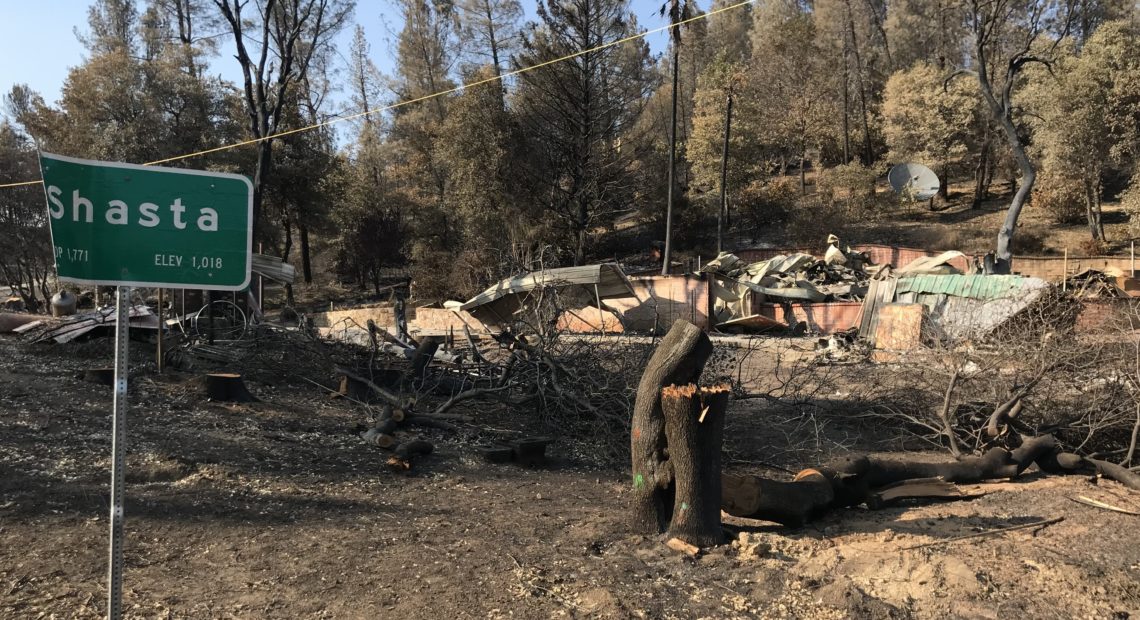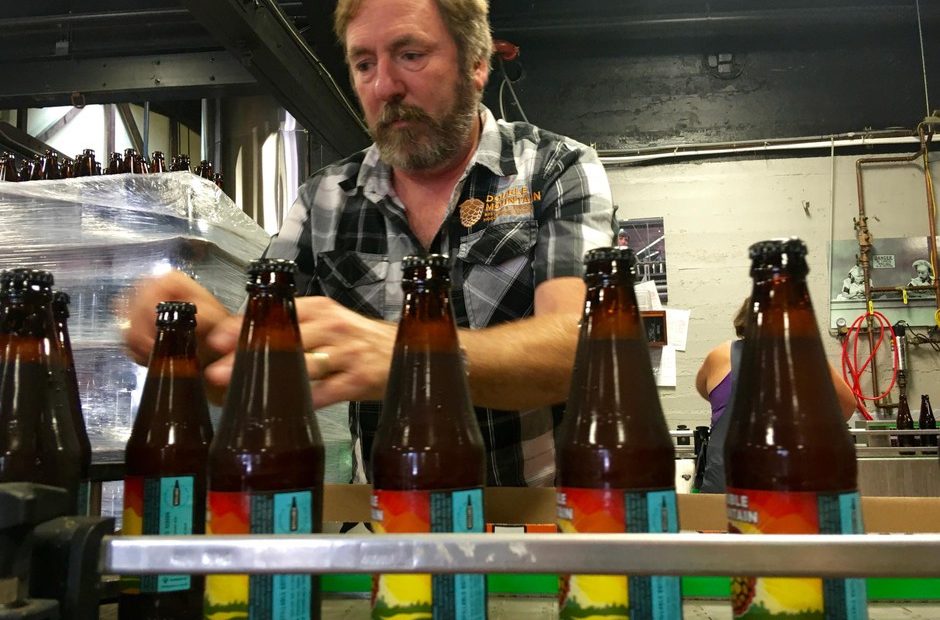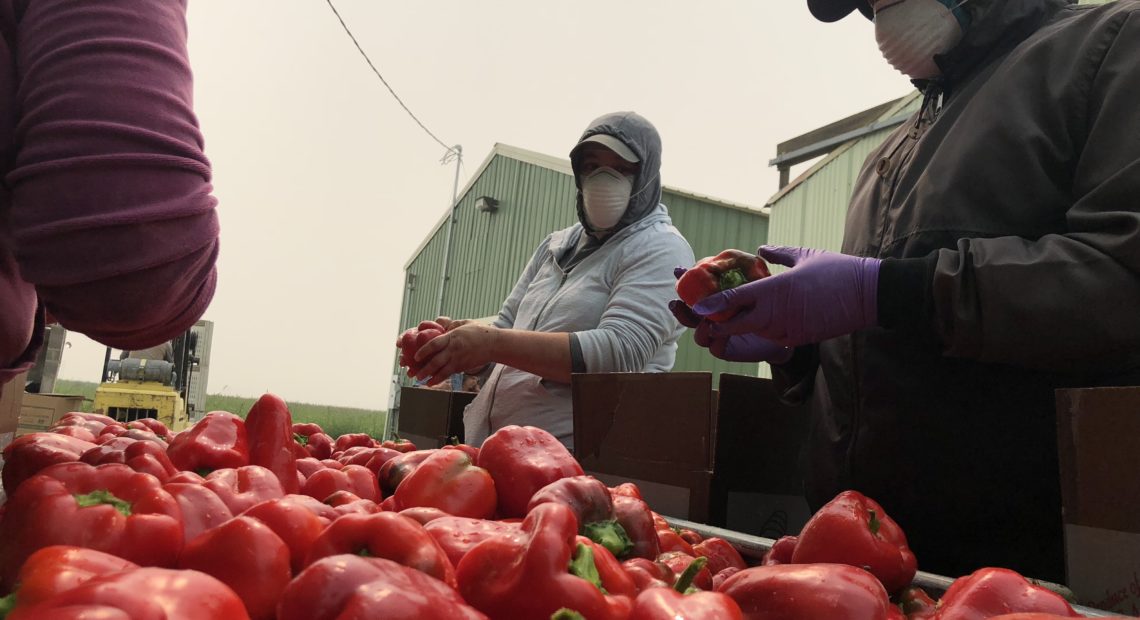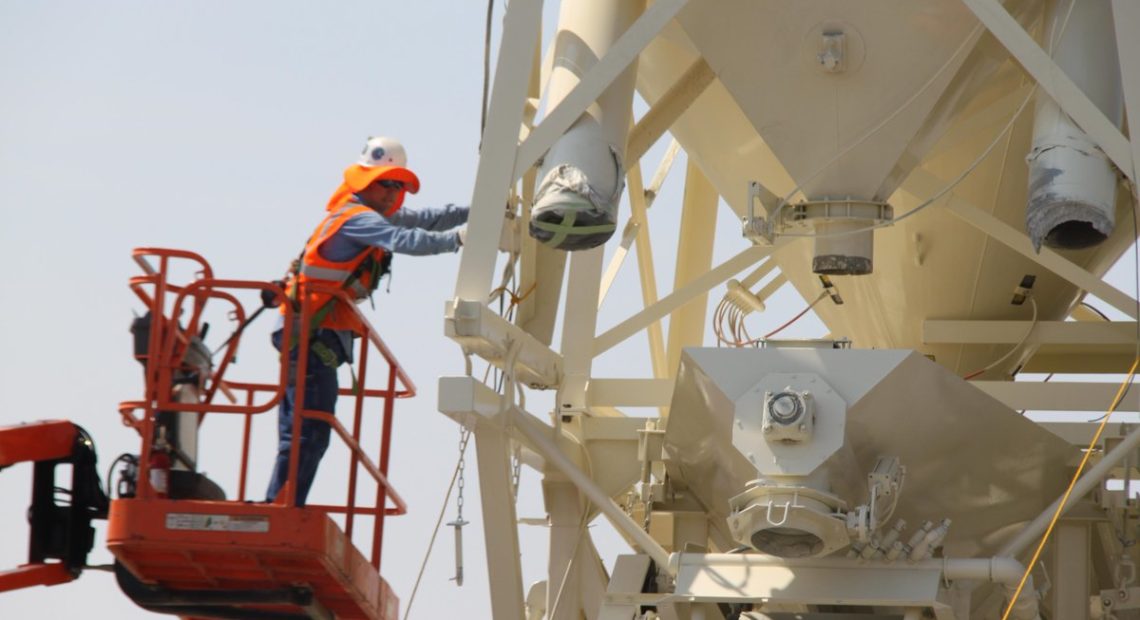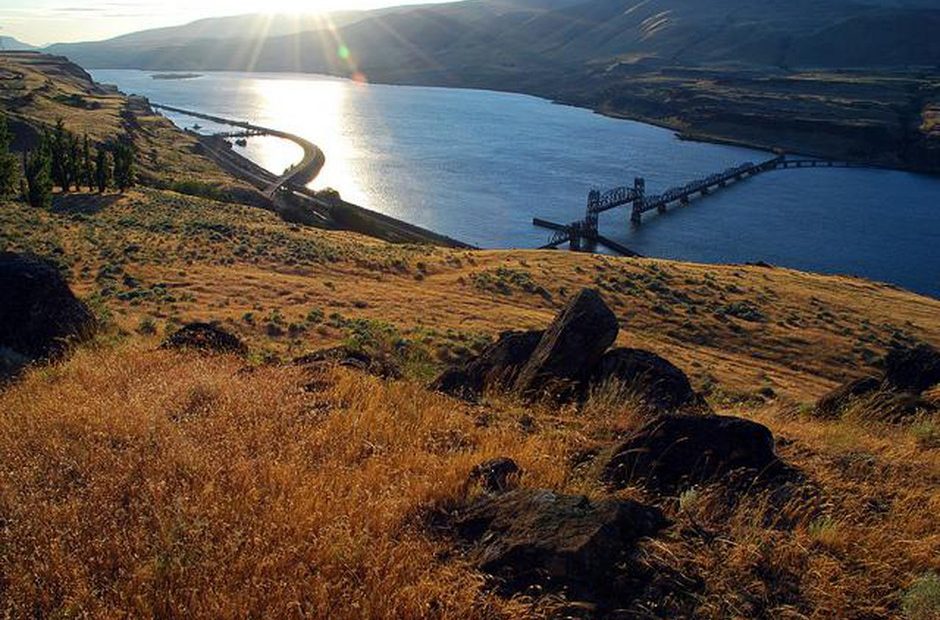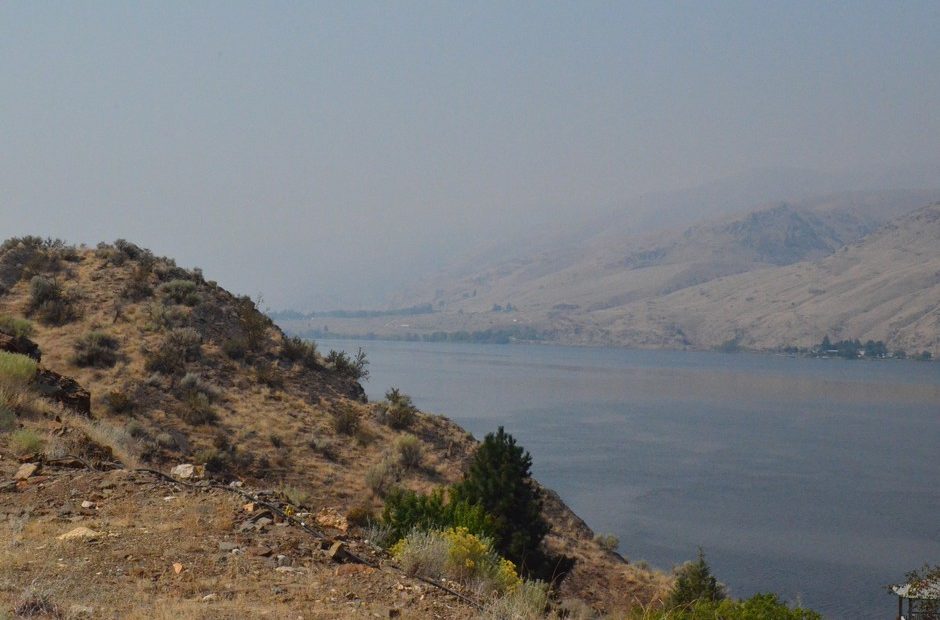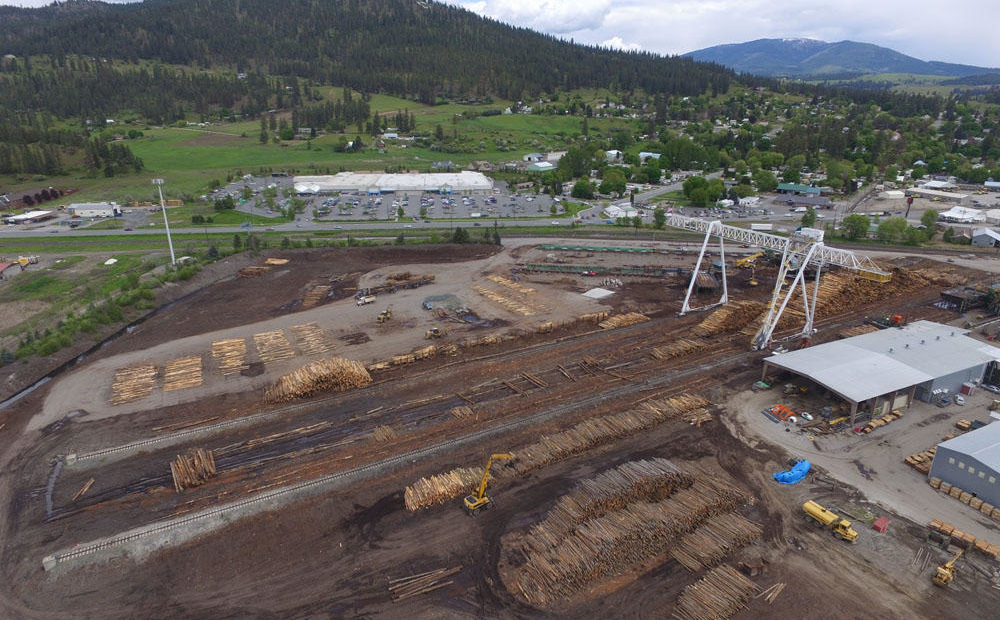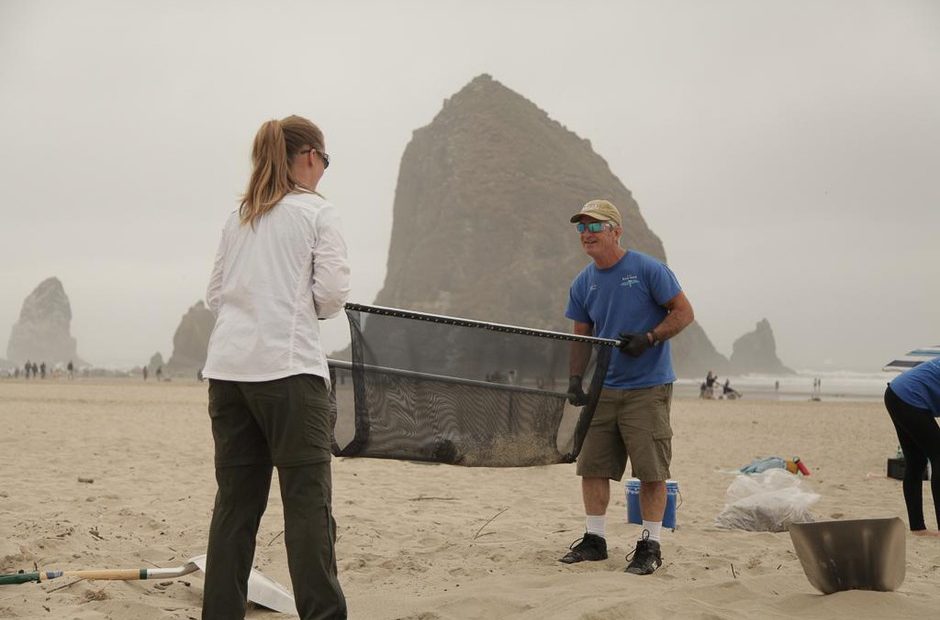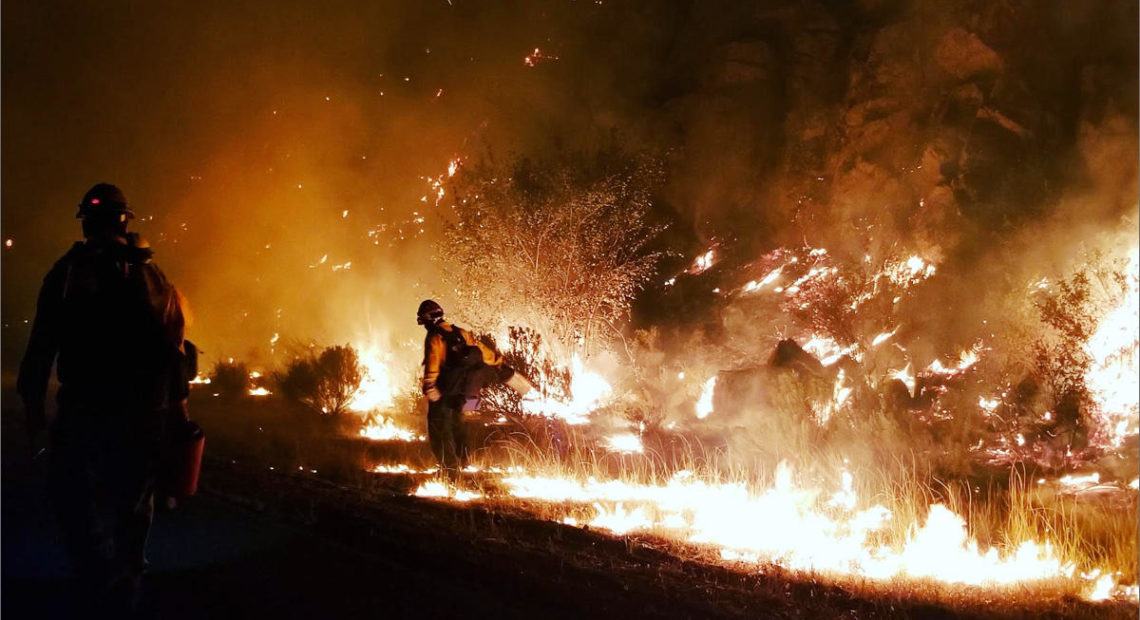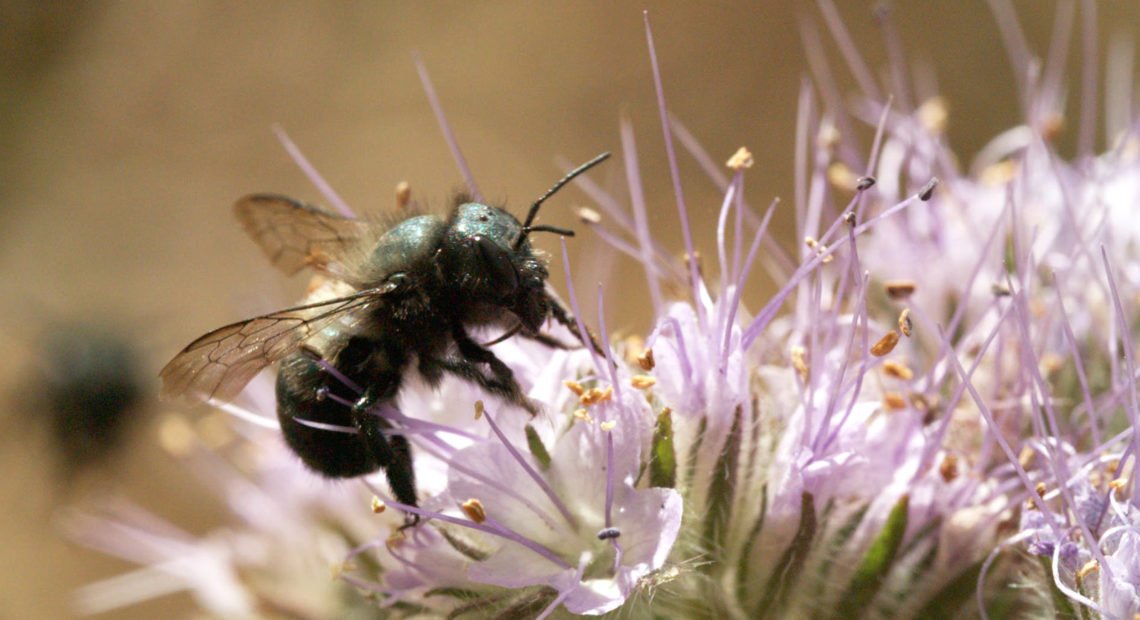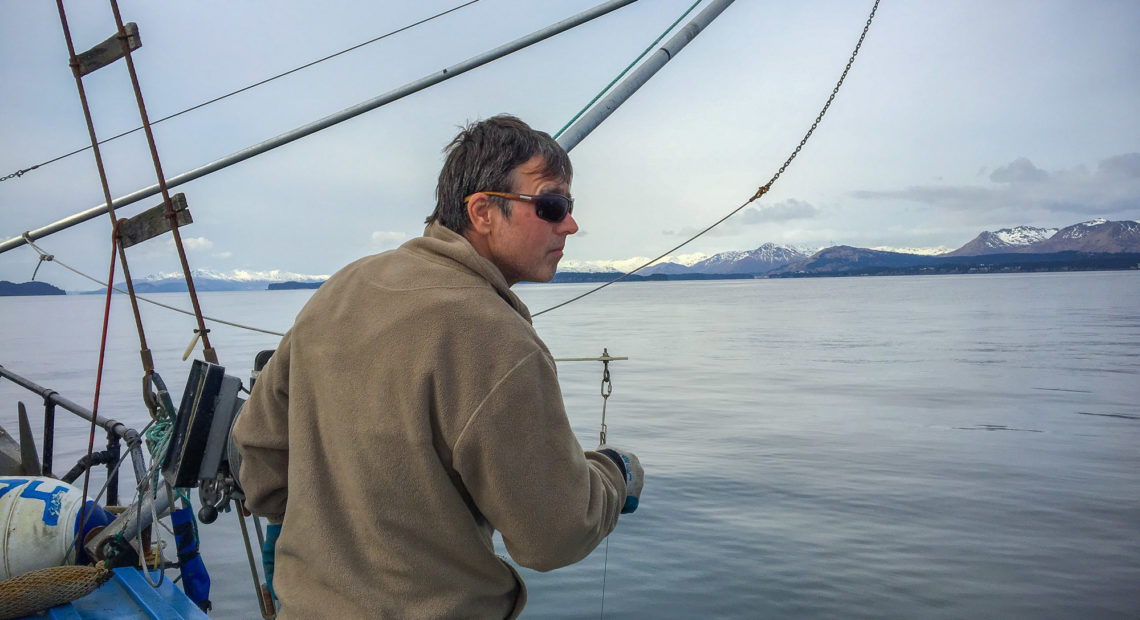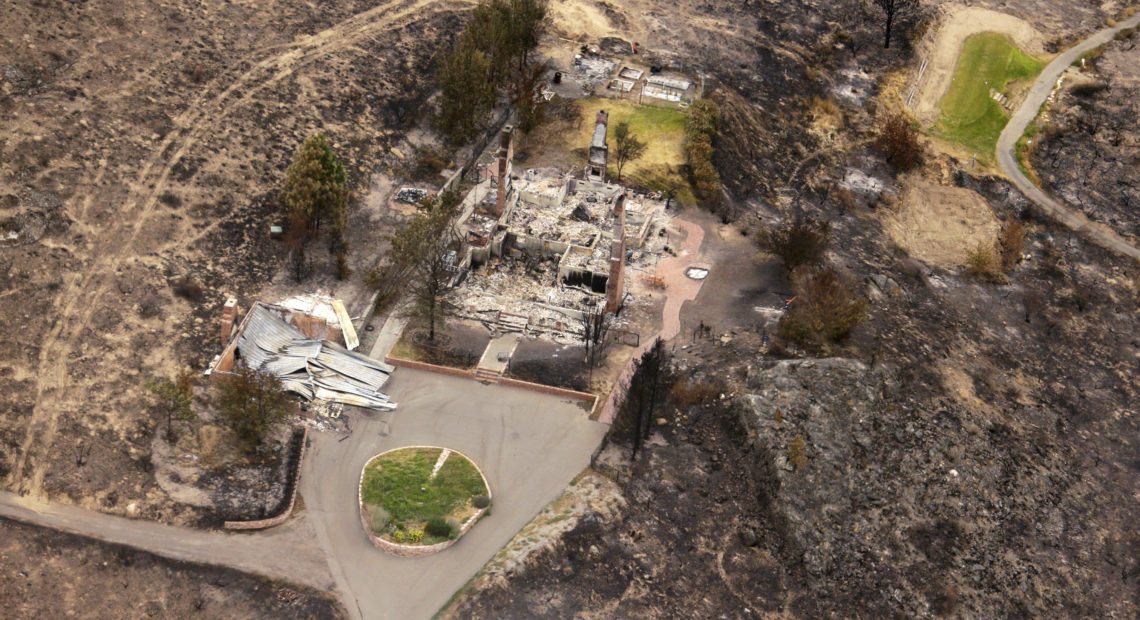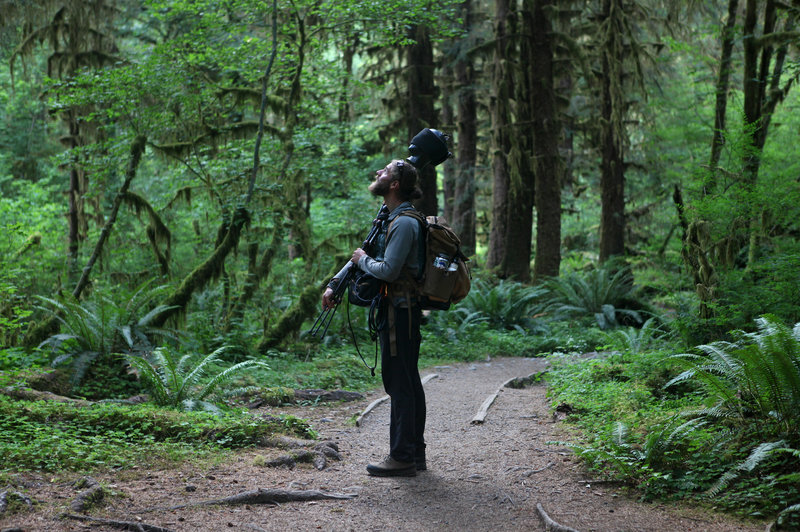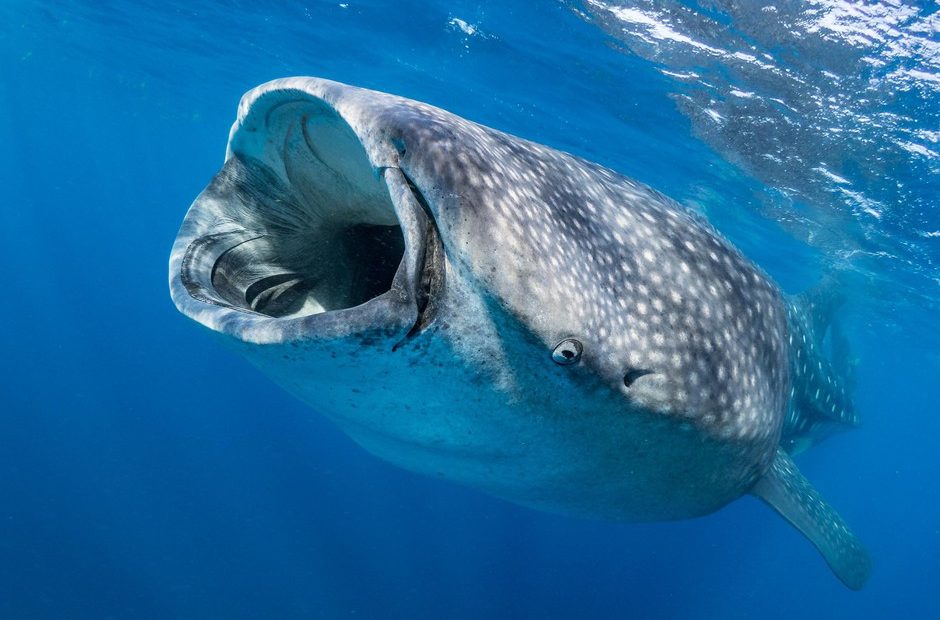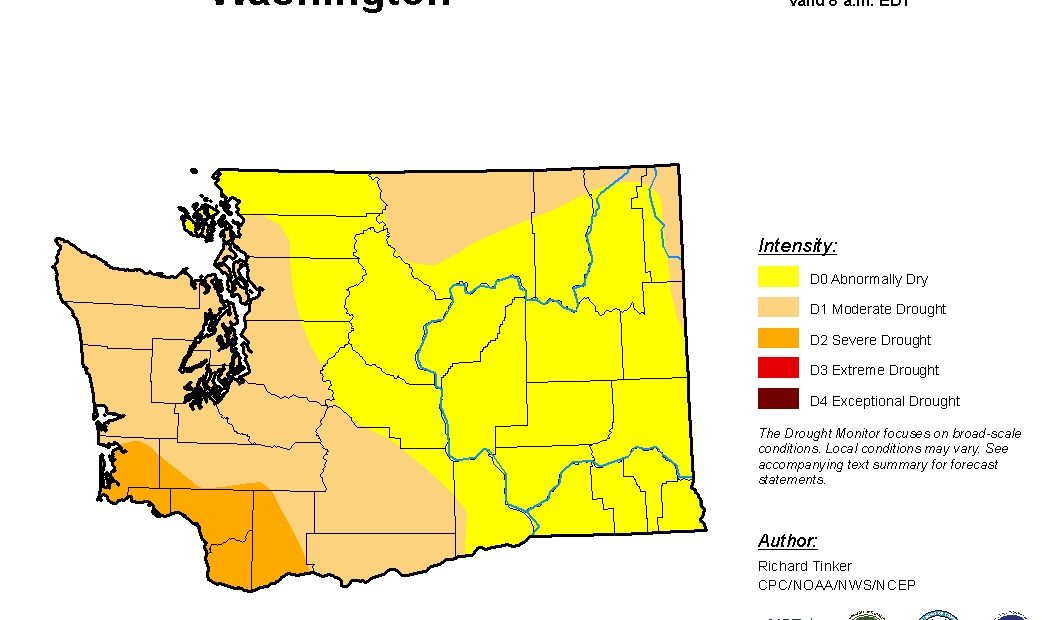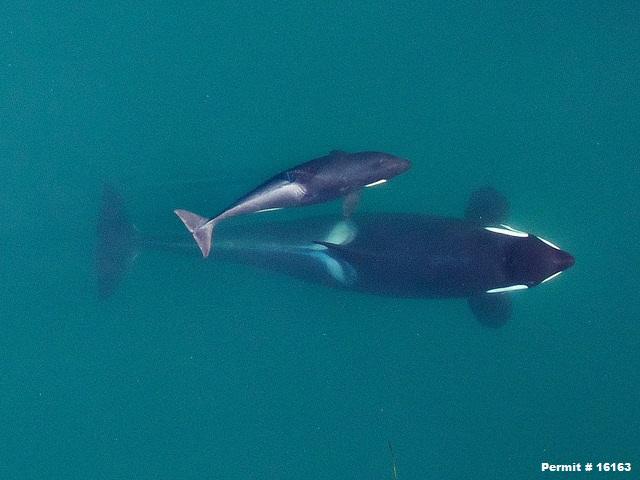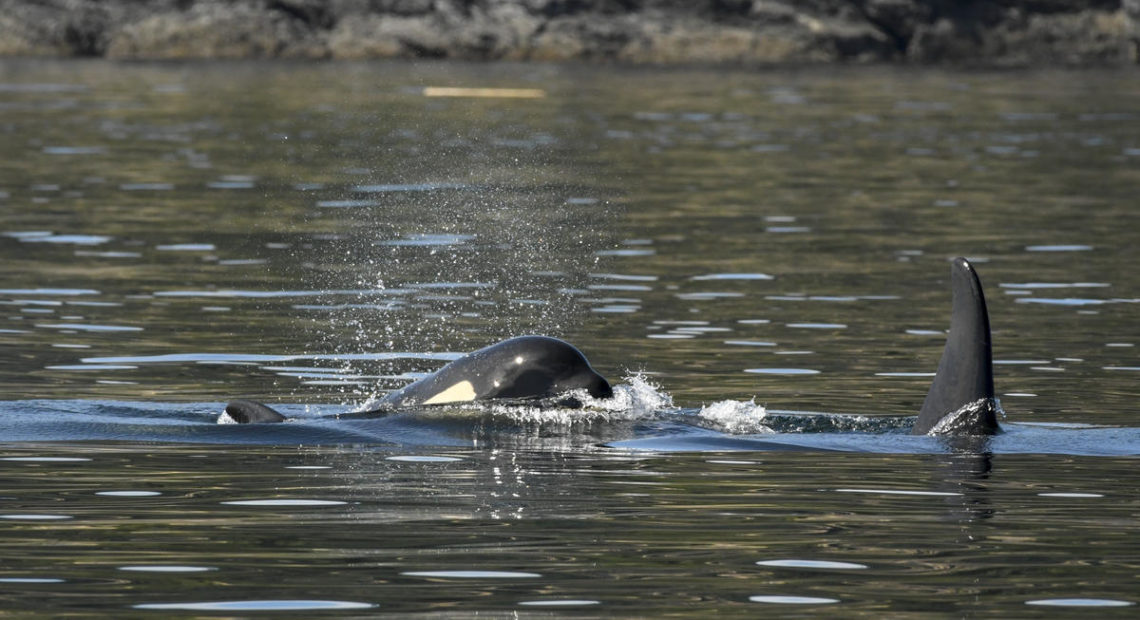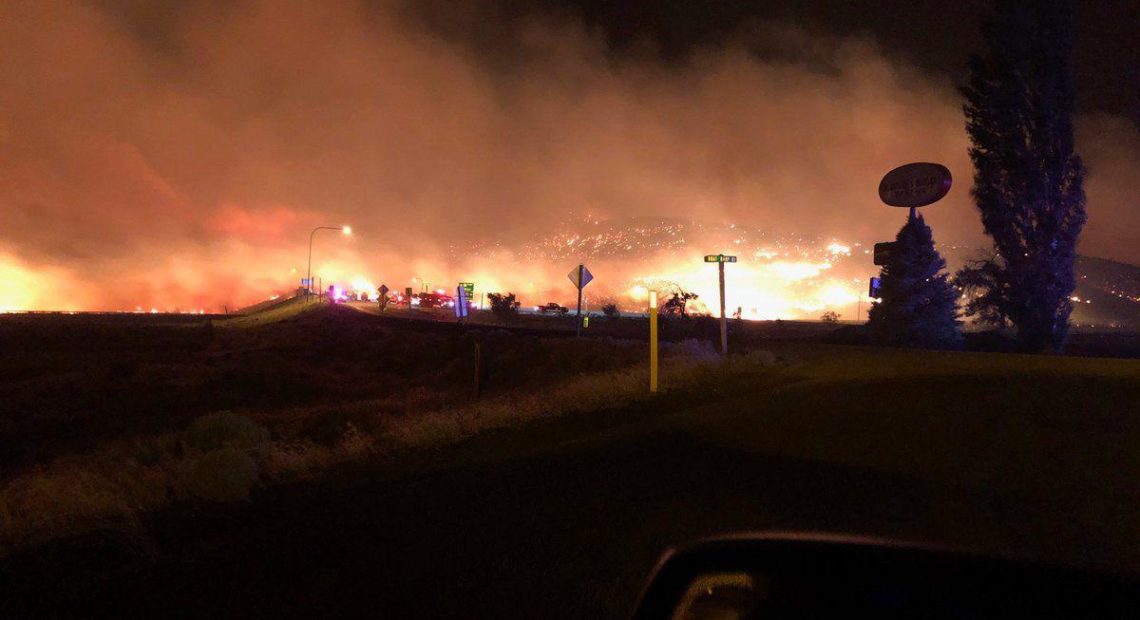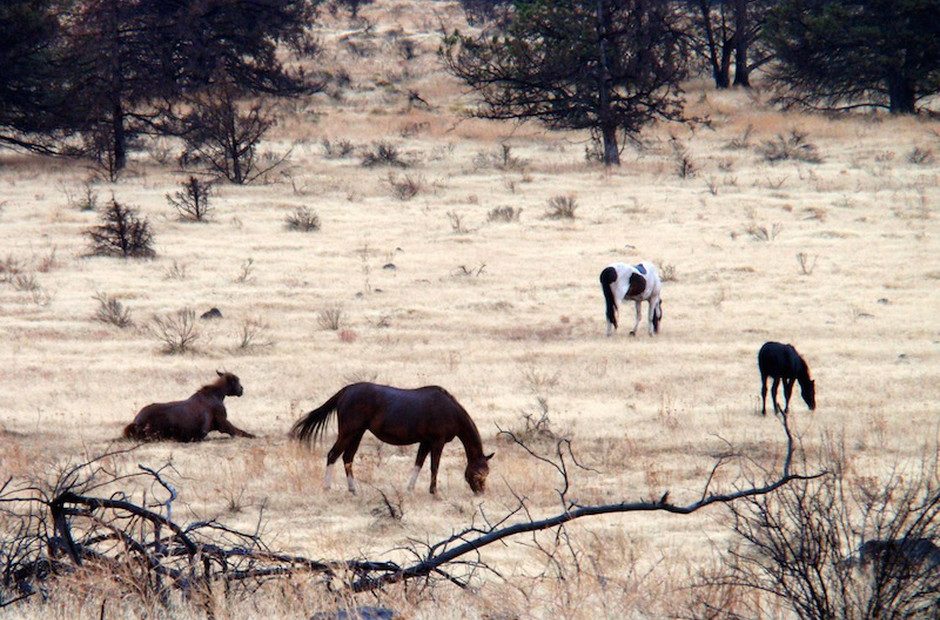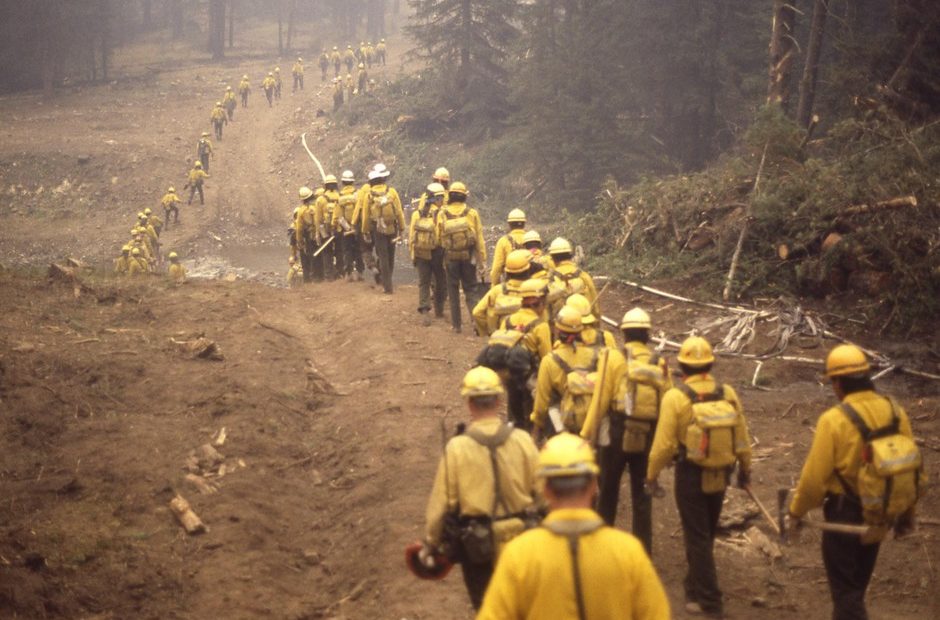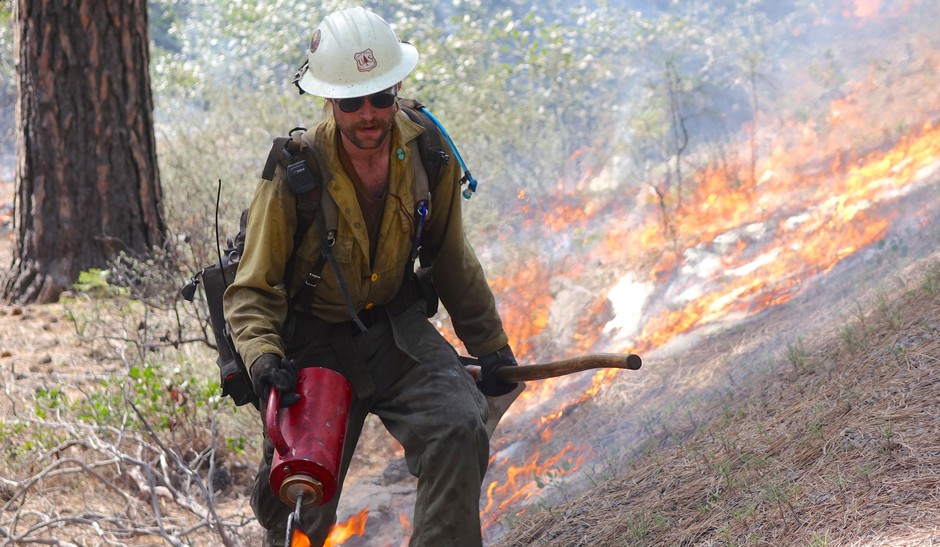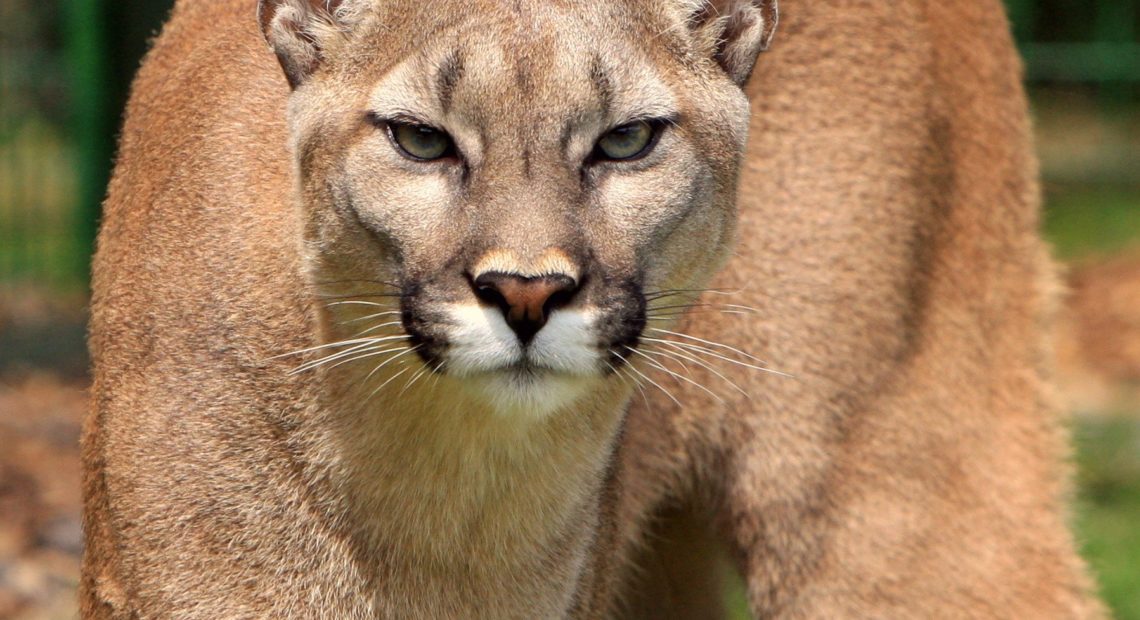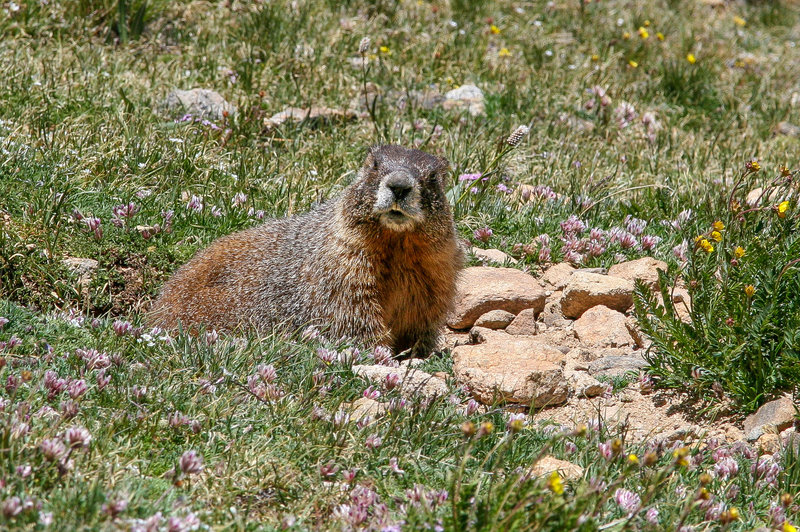After nearly 20 years, a troubled landfill-turned Superfund site outside Pasco may soon have a final cleanup plan. Washington State Department of Ecology managers presented options Wednesday at a public meeting in the Tri-Cities.Read More
Environment
The Seattle waterfront is getting a redesign to be friendlier to fish. The city is redesigning this area for migrating salmon, making it more like the shoreline that was here before there was a city.Read More
More people are living in places that are prone to wildfires. That means during fire season, they live with the very real possibility of having to evacuate on very short notice.Read More
Climate change is heating up national parks much faster than the rest of the U.S. That’s according to a first-of-its-kind study that looked all 417 national parks, including those in the Northwest.Read More
Last week, the state of Washington, a Hanford union and a Hanford watchdog organization said they have tentatively settled a three-year old lawsuit against the U.S. Department of Energy over workers being made sick from toxic vapors from Hanford’s underground tanks.Read More
Despite the growth of population in the western U.S., water use in cities such as Denver, Las Vegas, San Diego and Phoenix is going down. The reason? High-tech, low-flow toilets.Read More
Once upon a time when Seattle was smaller, orchards dotted the shores of Lake Washington. Today, many of those old apple, plum and fig trees still thrive within urban neighborhoods. […]Read More
When toxins from algae made Salem’s drinking water potentially hazardous earlier this year, the city was unprepared to deal with both the public relations fallout from the breach and the more concrete matter of helping citizens access clean water.Read More
The Rocky Flats National Wildlife Refuge sits on more than 5,000 acres of trees, wetlands and pristine rolling prairie about 16 miles northwest of Denver. It hosts 239 migratory and resident species, from falcons and elk to the threatened Preble's meadow jumping mouse. It also used to be the site of a federal nuclear weapons facility — and it's reopening to the public this Read More
A federal appeals court has upheld a lower court ruling in a case that revolves around metals pollution from a Trail, British Columbia smelter dumping in the Columbia River and flowing south to Washington state.Read More
Deaths related to air pollution from wildfires could double by the end of the century, according to newly published research into the links between climate change, wildfires and human health.Read More
Wildlife biologists have relocated the first two dozen of hundreds of non-native mountain goats slated for removal from Olympic National Park. The logistically-challenging capture and transfer of the woolly wild animals to the northern Cascade Range has been periodically slowed by weather this week.Read More
Officials in Canada and the U.S. are hatching a plan to temporarily capture and treat an emaciated orca. The young whale known as J-50 hasn't been spotted in nearly a week and could already be dead.Read More
When wildfires ripped through California's Napa Valley in October 2017, local artist Arleene Correa Valencia was shocked to hear that farm workers were continuing to work in the vineyards — even as smoke surrounded the area, and the locals were evacuating.Read More
Authorities say a dead hiker whose body was recovered this week was likely killed by a cougar, marking the first fatal attack by a wild cougar in Oregon and the second in the Northwest this year.Read More
On Sunday, Sept. 9 at 9 p.m., the Washington State Department of Transportation closed Blewett Pass for five days to replace fish-blocking pipes with a fish-friendly concrete box. The construction will cost taxpayers $1.2 million, although that’s nowhere near the full cost of the project.Read More
Despite its popularity, few know that it took skillful political compromise in the 1960s to establish North Cascades National Park and the adjacent Ross Lake and Lake Chelan National Recreation Areas.Read More
Since the late 1980s, the U.S. Environmental Protection Agency has been keeping track of big polluters through their Toxic Waste Inventory or TRI. The EPA has released their latest data for 2017. We crunched some numbers for Washington, and here are the results. Read More
Like democracy and cute animals before it, The Enchantments mountain range is suffering from the misguided side-effects of social media — in particular, Instagram.Read More
A rocky outcropping on Oregon's coast is home to dozens of rare tufted puffins and, this summer, volunteer Art Broszeit — a de facto expert on the exotic cold climate birds.Read More
Veterinarians are again trying to help the emaciated young orca named J-50, after a dramatic turn of events over Labor Day weekend.Read More
A proposal for a $1.1 billion renewable fuels refinery on the Columbia River could be held up by a dispute over land use zoning.Read More
A healthy population of grizzlies in and around Glacier National Park means the bear may soon come off the endangered species list. But more bears mean more confrontations with humans.Read More
Washington government marksmen now have clearance to go out this weekend to shoot a wolf from a pack that has been preying on cattle in the Colville National Forest. On Friday a judge declined to extend a temporary stay on the killing won by several environmental groups last week.Read More
A Canadian federal judge has halted construction of a pipeline that would have sent more oil tankers through Washington waters.Read More
Climate change might lead to bigger populations of hungrier insects. This could have serious consequences for grain-growing regions in the Northwest and across the world.Read More
Wildlife advocates scrambled Thursday to find a new way to block grizzly bear hunts set to begin this weekend after a judge said he wouldn't immediately restore federal protections on the bears living in and around Yellowstone National Park.Read More
The Trump Administration has called for more logging of western forests to reduce wildfire risks. But people on the ground in the west say the solution is thinning and forest restoration, not logging.Read More
The next time you’re shopping for beer in Oregon, take a close look at the bottle. A select few will be thicker and heavier than usual with the word “refillable” stamped into the glass.Read More
Smoke from wildfires is blanketing much of the West. That's ruining some crops and may be stunting others. And it's making it difficult or unsafe for laborers to pick the harvest.Read More
Recently, several mayors in the Tri-Cities publicly called for Tunnel 2 to be filled in immediately. They’re worried a collapse of the tunnel could throw up a plume of dust exposing workers or the public.Read More
Two hazardous waste companies operating along the Columbia River are arguing over mercury pollution getting into the air. One company, TD*X, is accusing the other, Chemical Waste Management, of releasing mercury into the air. The report goes on to say regulators aren’t requiring strong pollution controls.Read More
Climate change is advancing. Snowpack is decreasing, and summers are hotter and drier. A century’s worth of fire suppression is leaving forests overloaded with fuel. All of that is creating the conditions for wildfires to spread quickly and widely and burn huge trees along with the underbrush. Fire seasons are now 105 days longer in the western U.S. than they were in the 1970s.Read More
In 2013, the U.S. Forest Service was looking for someone to reduce wildfire risk and rehabilitate a stand of overgrown trees on the Colville National Forest in northeastern Washington. Colville-based Vaagen Brothers Lumber submitted the one and only proposal to take on the ‘A to Z’ project. Its future awaits a federal court decision.Read More
With the guidance of Seaside-based conservation group Sea Turtles Forever, about 50 volunteers gathered to clean the sand near Haystack Rock using unique screen filtration systems.Read More
Wildfire activity in the American West is likely to get worse in coming years. A new study out in the Proceedings of the National Academy of Sciences points to the lack of precipitation in the summer as the major driving factor when it comes to increasing fire severity.Read More
While honeybees and their buzzing hives and hyper-fertile queens get all the press for pollinating our food supply, the hard-working blue orchard bee is one of 4,000 bee species native to North America that does its solitary work in relative obscurity. That is, until now.Read More
The cod population in the Gulf of Alaska is at its lowest level on record. Scientists say the culprit is a warm-water mass known as "the blob."Read More
For people living in the “wildland-urban interface,” wildfire risk is the new normal, and the risk is increasing as more people move into places where cul-de-sac meets forest or sagebrush. Read More
In 2005, when Gordon Hempton founded One Square Inch of Silence, he designated a spot, a few miles up the Hoh River Trail into the rain forest, the quietest place in the U.S. and marked it with a small, red stone. "In a place like this your auditory horizon isn't just 1 or 2 miles," he says. "You can hear everything that's happening in this valley.Read More
A Portland-based organization has developed a digital tool called Wildbook that uses artificial intelligence and machine learning to expedite wildlife identification.Read More
The U.S. Drought Monitor says the entire state of Washington is abnormally dry. In Oregon, nearly 90 percent of the state is facing moderate to severe drought.Read More
An emaciated orca from the Pacific Northwest’s critically-endangered resident killer whale population could get a pole injection of medicine under the latest preferred option of an emergency response team. Officials with the lead federal agency, the National Oceanic and Atmospheric Administration, described the changing situation Monday morning.Read More
An emaciated, four-year-old Puget Sound orca is drawing alarm. Whale scientists and the federal agency NOAA are weighing what it means to provide food and medicine to this endangered orca. The declining health of the orca has become apparent as it swims and feeds in the border waters between Washington and British Columbia.Read More
Fire officials say this year is on par with 2014 and 2015 – two of the worst seasons on record in the Northwest. Things are ramping up nearly a month earlier than previous years, and resources are stretched thin. Read More
An animal advocacy group says the federal government shouldn’t perform sterilization surgeries on wild horses in southeastern Oregon to control their numbers.Read More
The West is in the midst of another intense fire season. Fires in California and Oregon have claimed lives and homes and burned up farmland. As part of EarthFix’s ongoing series on wildfire, reporter Tony Schick spoke with interim Forest Service Chief Vicki Christiansen about what her agency is doing to reform fire management and reverse the fire problem.Read More
The West is way behind on reducing the buildup of hazardous fuels we created. And much of the work we do to reduce those fuels is missing the key ingredient: fire.Read More
Northwesterners are hearing a lot about mountain lions lately. Since May, an extremely rare fatal attack in the Washington Cascades, a Willamette Valley pool party interrupted by a wandering cat and a viral Facebook video of a mountain lion lounging in a southern Oregon woman’s living room have made headlines across the region.
Are the Northwest’s mountain lions acting Read More
A warming climate is knocking nature's rhythms out of sync. High in the Rocky Mountains, scientists have been tracking the impact for decades.Read More

